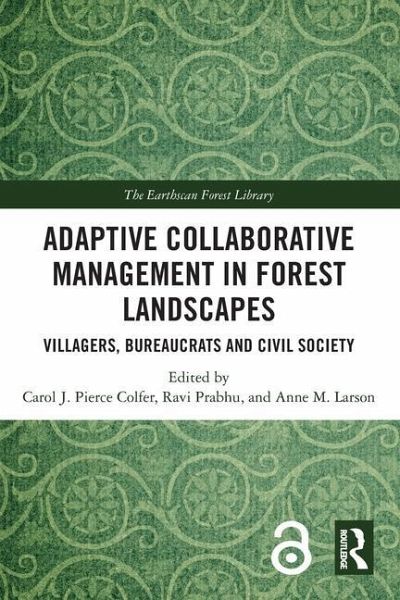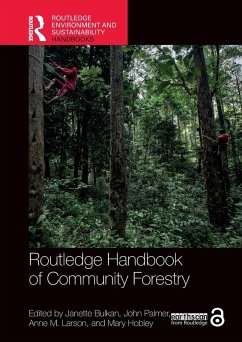
Adaptive Collaborative Management in Forest Landscapes
Villagers, Bureaucrats and Civil Society
Herausgeber: Colfer, Carol J. Pierce; Larson, Anne M.; Prabhu, Ravi
Versandkostenfrei!
Versandfertig in 1-2 Wochen
56,99 €
inkl. MwSt.

PAYBACK Punkte
28 °P sammeln!
This book examines the value of Adaptive Collaborative Management for facilitating learning and collaboration with local communities and beyond, utilising detailed studies of forest landscapes and communities. Many forest management proposals are based on top-down strategies, such as the Million Tree Initiatives, Forest Landscape Restoration (FLR) and REDD+, often neglecting local communities. In the context of the climate crisis, it is imperative that local peoples and communities are an integral part of all decisions relating to resource management. Rather than being seen as beneficiaries or...
This book examines the value of Adaptive Collaborative Management for facilitating learning and collaboration with local communities and beyond, utilising detailed studies of forest landscapes and communities. Many forest management proposals are based on top-down strategies, such as the Million Tree Initiatives, Forest Landscape Restoration (FLR) and REDD+, often neglecting local communities. In the context of the climate crisis, it is imperative that local peoples and communities are an integral part of all decisions relating to resource management. Rather than being seen as beneficiaries or people to be safeguarded, they should be seen as full partners, and Adaptive Collaborative Management is an approach which priorities the rights and roles of communities alongside the need to address the environmental crisis. The volume presents detailed case studies and real life examples from across the globe, promoting and prioritizing the voices of women and scholars and practitioners from the Global South who are often under-represented. Providing concrete examples of ways that a bottom-up approach can function to enhance development sustainably, via its practitioners and far beyond the locale in which they initially worked, this volume demonstrates the lasting utility of approaches like Adaptive Collaborative Management that emphasize local control, inclusiveness and local creativity in management. This book will be of great interest to students, scholars and practitioners working in the fields of conservation, forest management, community development and natural resource management and development studies more broadly. The Open Access version of this book, available at www.taylorfrancis.com, has been made available under a Creative Commons Attribution-Non Commercial-No Derivatives 4.0 license














